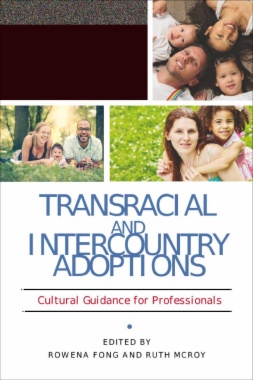With essays by well-known adoption practitioners and researchers who source empirical research and practical knowledge, this volume addresses key developmental, cultural, health, and behavioral issues in the transracial and international adoption process and provides recommendations for avoiding fraud and techniques for navigating domestic and foreign adoption laws. The text details the history, policy, and service requirements relating to white, African American, Asian American, Latino and Mexican American, and Native American children and adoptive families. It addresses specific problems faced by adoptive families with children and youth from China, Russia, Ethiopia, India, Korea, and Guatemala, and offers targeted guidance on ethnic identity formation, trauma, mental health treatment, and the challenges of gay or lesbian adoptions
- Table of Contents
- Foreword
- Acknowledgments
- Introduction, by Rowena Fong, Ruth McRoy and Ann Schwartz
- 1. Overview of Intercountry Adoptions, by Rowena Fong, Ruth McRoy, and Hollee McGinnis
- 2. Legal and Policy Issues Impacting Intercountry Adoption Practices, by Karen Rotabi and Carmen Monico
- 3. Overview of and Legal and Policy Issues Impacting Transracial Adoptions, by Ruth McRoy, Amy Griffin and Hollee McGinnis
- 4. Interculturally Competent Practice with Gay and Lesbian Families, by Devon Brooks, Doni Whitsett, and Jeremy T. Goldbach
- 5. A Neurodevelopmental Perspective and Clinical Challenges, by Bruce Perry, Erin Hambrick and Robert Perry
- 6. Ethnic Identity Formation, by Ellen E. Pinderhughes, Jessica A. K. Matthews, Xian Zhang
- 7. Mental Health Issues, by Amanda L. Baden, Jonathan R. Mazza, Andrew Kitchen, Elliotte Harrington, and Ebony White
- 8. Medical Issues, by Dana E. Johnson and Judith K. Eckerle
- 9. School Issues, by Jae Ran Kim and Beth Hall
- 10. The Need for Adoption Competent Mental Health Professionals, by Debbie Riley and Ellen Singer
- List of Contributors
- Index

